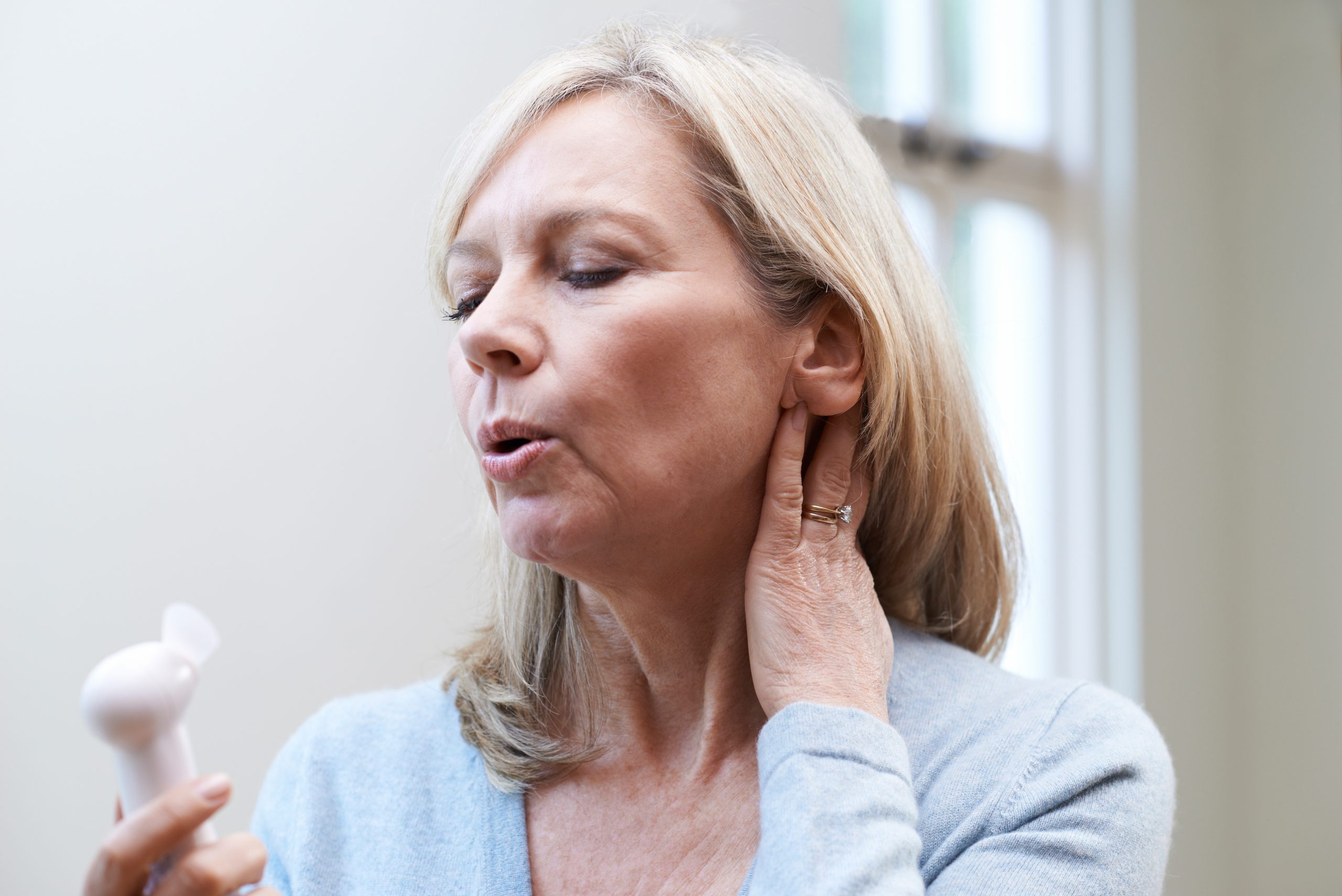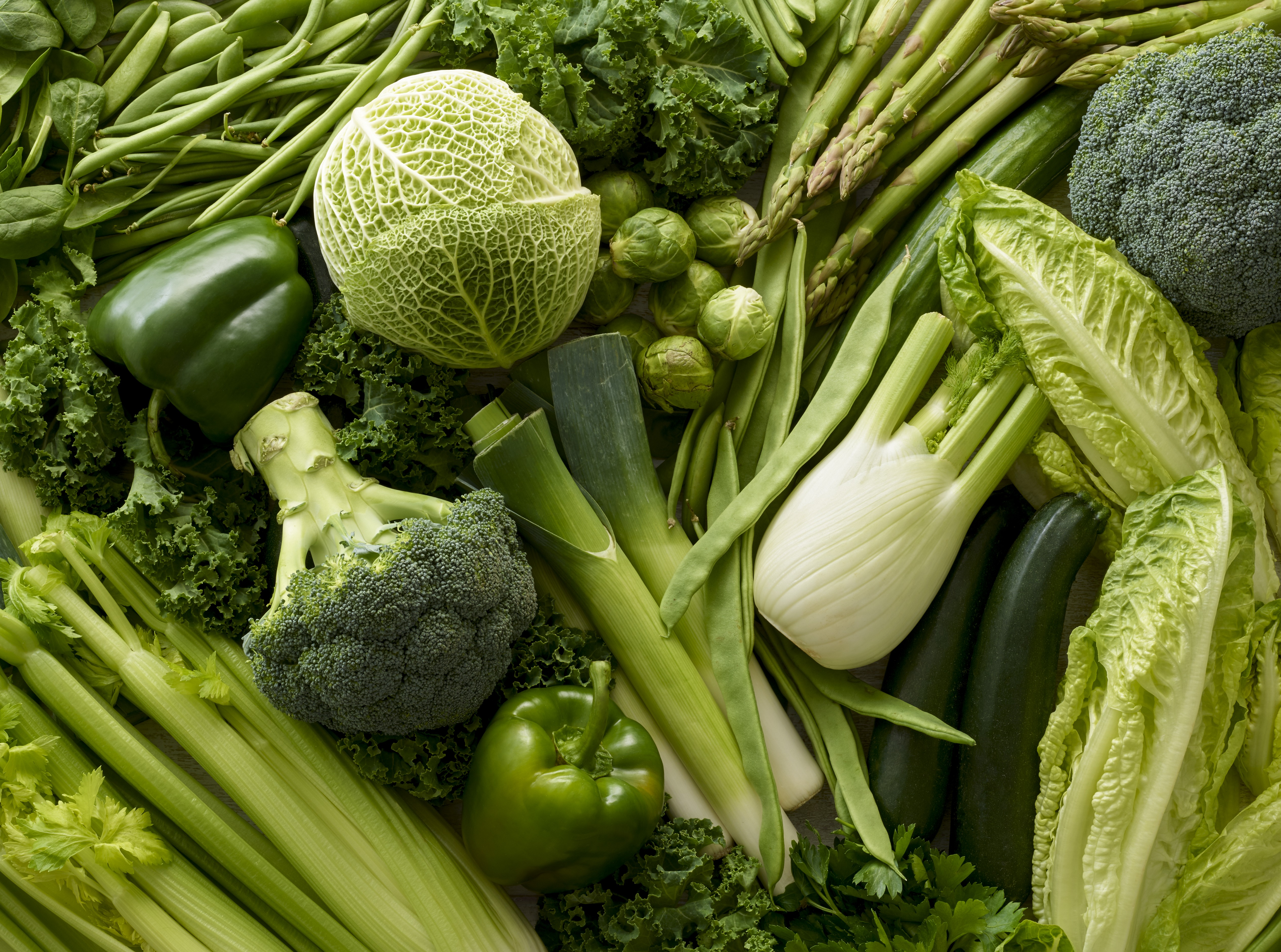Expert reveals this one herb can help ease menopause symptoms
Genius!

Going through the menopause is part of life’s natural rhythm and marks the beginning of a new chapter in a woman’s life.
During this time, the change in a woman’s two key sex hormones - oestrogen and progesterone - can create an unwanted challenge, with both emotional and physical symptoms to deal with, such as hot flushes, night sweats, loss of sex drive, weight gain and mood changes.
Jo Webber, Head of Herbal Education at Pukka Herbs, reveals that it would be "unusual for a women to not experience any form of change at all whether it be physical or emotional".
"The main difference is in the severity of the symptoms," she adds.
This World Menopause Day on the 18th of October, Jo shares her simple advice on naturally easing the symptoms of menopause using herbs and daily practices…
Helpful Herbs
"One of the very best herbs for supporting hormonal change throughout a woman’s lifecycle is Shatavari. The name shatavari is derived from the Sanskrit words shat, which means ‘100’ and vri, which means ‘root’.
Sign up for the woman&home newsletter
Sign up to our free daily email for the latest royal and entertainment news, interesting opinion, expert advice on styling and beauty trends, and no-nonsense guides to the health and wellness questions you want answered.
"The word vari can also mean ‘husband’, which may explain why shatavari is often referred to as ‘she who has a hundred husbands’," reveals Jo. For centuries, this root has been used to treat and nourish women’s health.
Jo adds that Shatavari is a renowned tonic for the female reproductive system and contains natural precursors to female hormones to help to balance them and reduce menopausal symptoms.
"It’s also naturally cooling and moistening to the reproductive tract, making it perfect for the hot, dry symptoms of menopause."
We love Pukka's Womankind Menopause supplement, which contains Shatavari along with a blend of botanicals.
Watch Your Diet
Look at foods that help to balance oestrogen levels within the body, says Jo. Try…
Cruciferous veggies: Such as broccoli, cauliflower, Brussels sprouts and cabbage, which contain several powerful nutrients to help metabolise oestrogenic molecules.

Healthy fat-rich foods: These are foods rich in saturated and omega-3 fatty acids, including plant-based fats such as coconut oil, hemp seed oil, extra virgin olive oil and avocados. Raw nuts (other than peanuts) and seeds contain oestrogen balancing plant sterols.
Allium family: The alliums include garlic, onions, scallions, chives and leeks. These are all rich in sulfur-containing amino acids and the powerful flavone anti-oxidant quercetin that both help the liver detoxify and reduce the production of oestrogen.
Herbal Teas: Green tea and liquorice specifically balance oestrogen levels.
Lentils: All lentils contain appreciable amounts of phyto-oestrogens that help to balance oestrogen-progesterone levels. Soy is well known for this but all pulses are helpful.

Try Yoga
Jo explains, "As a practitioner, one of the primary influencing factors I have noticed on the severity of symptoms of menopause is stress. Incorporating daily practices such as yoga, meditation and mindfulness can be helpful. But also listening to what your body needs, being in tune with your energy levels and making sure you are not overdoing it."
And for post menopause…
"Lower levels of oestrogen can impact on bone density, so increasing key minerals to support bone health and incorporating herbs that boost circulation to the muscles, such as turmeric, can be especially helpful," says Jo.
Lucy Gornall is the former Health & Fitness editor at Future and a personal trainer specializing in pre and post-natal exercise.
-
 Kate Middleton’s go-to bag for special occasions is a wedding season essential you’ll bring back time and time again
Kate Middleton’s go-to bag for special occasions is a wedding season essential you’ll bring back time and time againThe Princess of Wales always reaches for the same elegant style of bag for formal events and it works beautifully for weddings.
By Emma Shacklock
-
 Dr Amir Khan reveals the 5 symptoms you should 'never' ignore, no matter how 'vague' they are
Dr Amir Khan reveals the 5 symptoms you should 'never' ignore, no matter how 'vague' they areDr Amir Khan, a GP who often appears on ITV's Lorraine, took to Instagram this week to share the symptoms he'll always take a second look at
By Grace Walsh
-
 5 sexperts share their secrets to better sex for mature women
5 sexperts share their secrets to better sex for mature womenThese women know how to put the va-va-voom back into the bedroom… possibly even the kitchen! Here's what we've learned from them
By Kim Willis
-
 Can menopause cause a loss of taste and smell? Plus, 6 other signs of menopause you might not expect
Can menopause cause a loss of taste and smell? Plus, 6 other signs of menopause you might not expectCan menopause cause a loss of taste and smell? It's more than just colds and flu that can change our tastebuds
By Emily Smith
-
 The health benefits of protein powder for women, according to a nutritionist
The health benefits of protein powder for women, according to a nutritionistWe've got the scoop on the benefits of protein powder when it comes to your health
By Lucy Gornall
-
 Wondering if you're postmenopausal? These are 9 ways your body changes post-menopause
Wondering if you're postmenopausal? These are 9 ways your body changes post-menopauseThese are the body changes you can expect if you're postmenopausal
By Lauren Clark
-
 Can you get pregnant during perimenopause? Here’s how your fertility changes from your 40s
Can you get pregnant during perimenopause? Here’s how your fertility changes from your 40sIf you’re wondering can you get pregnant during perimenopause, we’ve got the expert verdict
By Lauren Clark
-
 What are the main menopause symptoms? Find out the signs and when to see your doctor
What are the main menopause symptoms? Find out the signs and when to see your doctorA team of experts outline common menopause symptoms and how to deal with them
By Stacey Carter
-
 Here's how to tell whether you're experiencing menopausal weight gain—and what to do about it
Here's how to tell whether you're experiencing menopausal weight gain—and what to do about itIf menopausal weight gain is knocking your confidence, this is everything you need to know...
By Lauren Clark
-
 How to calm down hot flushes if you are going through the menopause
How to calm down hot flushes if you are going through the menopauseHot flushes are thought to be caused by hormonal fluctuations—these are the best ways to ease them...
By Lauren Hughes